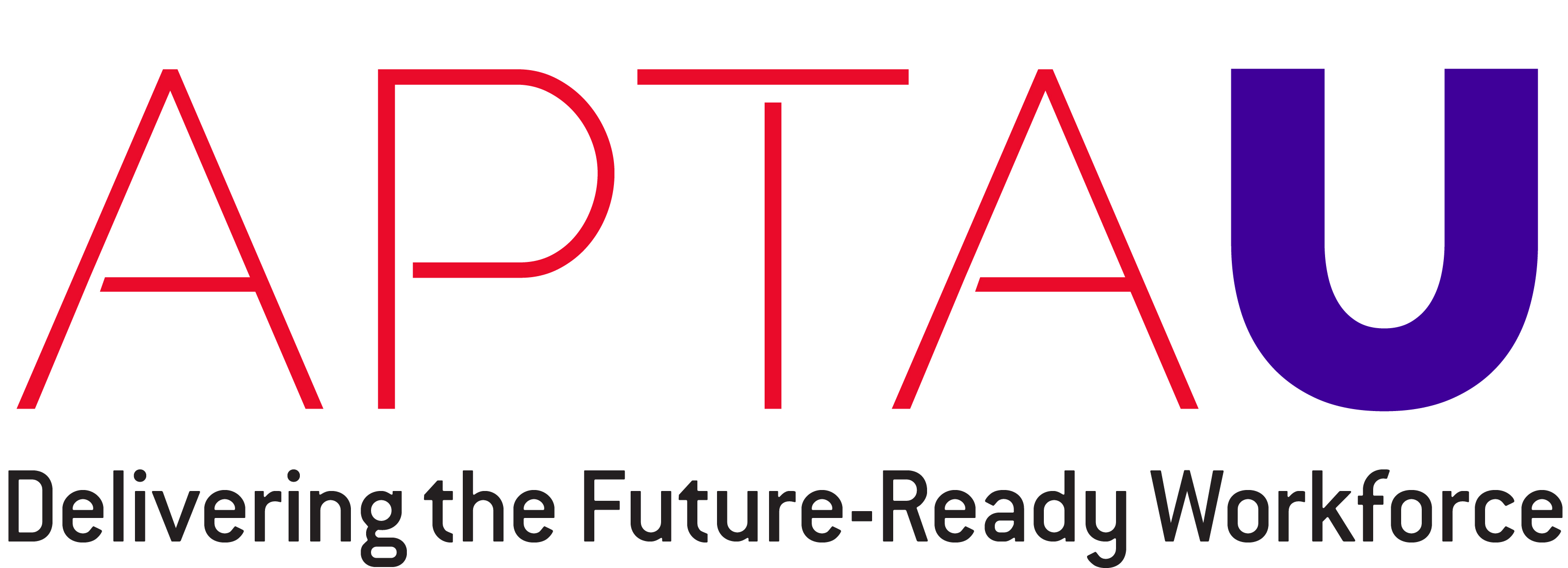
Catalog Advanced Search
-
Recorded On: 07/02/2025
The session will highlight techniques and strategies utilized to advance projects and accelerate timelines.
While transit agencies strive to have all projects implemented as expeditiously as they can, challenges inevitably arise in the delivery of most projects. To reduce the number of years to implement transit projects, we collectively can learn from the experiences of those who have found ways to expedite project delivery. The session will highlight techniques and strategies utilized to advance projects and accelerate timelines.
Closing Remarks:
- Paul Skoutelas, President and CEO, American Public Transportation Association
Moderator:
- Nadine Lee, President & CEO, Dallas Area Rapid Transit
Panelists:
- Timothy Lindholm, Chief Program Management Officer, Los Angeles County Metropolitan Transportation Authority
- Dow Constantine, CEO, Sound Transit
- David L. Adams, Senior Manager – Traffic Operations Division, Pennsylvania Department of Transportation
- Basem Muallem, Statewide Regional Director, California High-Speed Rail Authority
- Phillip Eng, General Manager/CEO, Massachusetts Bay Transportation Authority
-
Register
- Member - $49
- Non-member - $99
- More Information
-
Recorded On: 07/01/2025
This session brings together key leaders from Northern California's public transportation agencies to discuss the region's evolving mobility landscape and California as a laboratory for innovation.
This session brings together key leaders from Northern California's public transportation agencies to discuss the region's evolving mobility landscape and California as a laboratory for innovation. Panelists will explore innovative strategies for enhancing rider experience, addressing funding challenges, integrating new technologies, and leveraging each other’s successes to create a regional transportation superhub. Discover collaborative approaches shaping the future of transportation in the Bay Area and beyond.
Introducer:
- Jeffrey Wharton, APTA Secretary/Treasurer; and SYSTRA USA Director, Contracts and Technical Services, SYSTRA USA
Moderator:
- Michael Pimentel, Executive Director, California Transit Association
Panelists:
- Michelle Bouchard, CEO, Caltrain (Peninsula Corridor Joint Powers Board)
- Julie Kirschbaum, Director of Transportation, San Francisco Municipal Transportation Agency (Muni)
- Henry Li, General Manager/CEO, Sacramento Regional Transit District
- Robert Powers, General Manager, San Francisco Bay Area Rapid Transit District (BART)
-
Register
- Member - $49
- Non-member - $99
- More Information
-
Recorded On: 06/30/2025
In this session you will discover proven development-transit partnership models, learn how to forge powerful alliances with local partners and developers, and uncover strategies to maximize your investment, drive ridership, and build thriving communities.
Join transit leaders from the U.S. and abroad to learn how they're turning transit assets into powerful growth engines that spur economic development and urban and regional regeneration. In this session you will discover proven development-transit partnership models, learn how to forge powerful alliances with local partners and developers, and uncover strategies to maximize your investment, drive ridership, and build thriving communities.
Rail Safety, Security and Emergency Management Awards: Prior to our panel discussion, join us as we honor the achievements of public transportation providers and railroads who have successfully implemented impactful safety, security and emergency management programs.
Introduction:
- Leanne Redden, Vice Chair, APTA; Executive Director, Regional Transportation Authority
Moderator:
- Carolyn Gonot, CEO/General Manager, Santa Clara Valley Transportation Authority
Panelists:
- Bruno Carr, Head of Strategy, The Transport for London Property Company
- Theresa Impastato, Executive Vice President and Chief Infrastructure Officer, Washington Metropolitan Area Transit Authority (WMATA)
- Jessica Mefford-Miller, Chief Executive Officer, Valley Metro
- Phillip Eng, General Manager/CEO, Massachusetts Bay Transportation Authority
Sponsor Remarks:
- Timothy McKay, Americas Transit Market Director - VP, Jacobs
-
Register
- Member - $49
- Non-member - $99
- More Information
-
Recorded On: 06/30/2025
This wide-ranging conversation reveals the innovative strategies and bold partnerships needed to deliver a seamless, inclusive, and Olympic-ready transportation network with legacy—and how public transit agencies and private sector firms can play a vital role.
Gold Rush: America’s 2028 Games and LA’s Rail Revolution is your invitation to get involved in one of the most ambitious transit undertakings in U.S. history. With 37 months until the world arrives in Los Angeles, join LA Metro CEO Stephanie Wiggins as she speaks with the leaders shaping the future of mobility for the 2028 Games, Bill Panos, Senior Vice President of Transportation at LA28, along with LA Metro’s Chief Operations Officer Conan Cheung and Chief of Innovation & Games Mobility Planning Seleta Reynolds. Together, they’ll share how leveraging investment in rail modes -- urban, commuter, and intercity rail – will make the 2028 Games the most successful in American history. This wide-ranging conversation reveals the innovative strategies and bold partnerships needed to deliver a seamless, inclusive, and Olympic-ready transportation network with legacy—and how public transit agencies and private sector firms can play a vital role.
FTA Acting Administrator Tariq Bokhari will open this general session with remarks.
Introducer:
- MJ Maynard-Carey, Chair, APTA; Chief Executive Officer, Regional Transportation Commission of Southern Nevada
Remarks:
- Tariq Bokhari, Acting Administrator, Federal Transit Administration
Featured Speakers:
- Stephanie Wiggins, Chief Executive Officer, Los Angeles County Metropolitan Transportation Authority
- Bill Panos, Senior Vice President of Transportation, LA28 Olympic & Paralympic Games
- Conan Cheung, Chief Operations Officer, Los Angeles County Metropolitan Transportation Authority
- Seleta Reynolds, Chief of Innovation & Games Mobility Planning, Los Angeles County Metropolitan Transportation Authority
-
Register
- Member - $49
- Non-member - $99
- More Information
-
Recorded On: 06/30/2025
The opening session will feature APTA leadership and our hosts, the San Francisco Bay Area Rapid Transit District (BART) and San Francisco Municipal Transportation Agency (SFMTA), setting the stage for the exciting content ahead. In addition to a robust keynote from Forbes World’s Top 50 Women in Tech, roboticist and entrepreneur Marita Cheng, who inspires people through the possibilities of technology.
The opening session will feature APTA leadership and our hosts, the San Francisco Bay Area Rapid Transit District (BART) and San Francisco Municipal Transportation Agency (SFMTA), setting the stage for the exciting content ahead.
In addition to a robust keynote from Forbes World’s Top 50 Women in Tech, roboticist and entrepreneur Marita Cheng, who inspires people through the possibilities of technology.
Keynote Speaker:
- Marita Cheng, Founder and CEO, Aubot
Introducer:
- Raymond Melleady, President, STER North America LLC
Remarks:
- Daniel Lurie, Mayor of San Francisco
- Toks Omishakin, Secretary of Transportation, California State Transportation Agency (CalSTA)
Chair's Welcome:
- MJ Maynard-Carey, Chair, APTA; Chief Executive Officer, Regional Transportation Commission of Southern Nevada
President's Welcome:
- Paul Skoutelas, President and CEO, American Public Transportation Association
Host Remarks:
- Julie Kirschbaum, Director of Transportation, San Francisco Municipal Transportation Agency (Muni)
- Robert Powers, General Manager, San Francisco Bay Area Rapid Transit District (BART)
Sponsor Remarks:
- Veronique Hakim, Sr VP & National Transit & Rail Market Sector Leader, HNTB Corporation
-
Register
- Member - Free!
- Non-member - Free!
- More Information
-
Recorded On: 06/10/2025
Operator schedules play a critical role in either supporting or derailing your organization's ability to attract and retain frontline staff. By leveraging innovative labor agreements and scheduling strategies, you can create solutions that promote work-life balance and drive better outcomes for your workforce.
Operator schedules play a critical role in either supporting or hindering your organization's ability to attract and retain frontline staff. By leveraging innovative labor agreements and scheduling strategies, you can create solutions that promote work-life balance for your workforce and drive better outcomes for organizations. To support this effort, the APTA Labor and Employee Relations Subcommittee is presenting data, insights, and real-world experiences from experts nationwide to help agencies assess if alternative scheduling is a good fit.
Panelists:
- TRISH COLLINS, APTA Labor and Employee Relations Subcommittee, Chair; Human Resources Director, Pinellas Suncoast Transit Authority, St. Petersburg, FL
- GEORGE FIELDS - APTA Labor and Employee Relations Subcommittee, 1st Vice Chair; Human Resources Deputy General Manager, Greater Cleveland Regional Transit Authority, Cleveland, OH
- KELLI COUGHLIN, APTA Labor and Employee Relations Subcommittee, 2nd Vice Chair; Senior Deputy Chief, MTA Long Island Railroad & Metro North Railroad, New York, NY
- KURT LUHRSEN, Interim Chief Operating Officer, Metropolitan Transit Authority of Harris County, Houston, TX
- REINALDO GERMANO, Planner, Foursquare ITP, Washington, DC
- Greater Cleveland Regional Transit Authority Team: NICK BIGGAR, LISA TOWNES, JOHN PALAGYI, AND SHAWNEE HUBBARD
-
Register
- Member - Free!
- Non-member - Free!
- More Information
-
Recorded On: 05/20/2025
Senator Sheldon Whitehouse (D-RI), Ranking Member of the Committee on Environment and Public Works, addressed conference attendees.
Senator Sheldon Whitehouse (D-RI), Ranking Member of the Committee on Environment and Public Works, addressed conference attendees.
Featured Speaker:
- Senator Sheldon Whitehouse, (D-RI), U.S. Senate
Introducer:
- Christopher Durand, Chief Executive Officer, Rhode Island Public Transit Authori
-
Register
- Member - Free!
- Non-member - Free!
- More Information
-
Recorded On: 05/20/2025
Representative Sam Graves (R-MO), Chairman of the Committee on Transportation and Infrastructure addressed conference attendees.
Representative Sam Graves (R-MO), Chairman of the Committee on Transportation and Infrastructure addressed conference attendees.
Featured Speaker:
- Representative Sam Graves, (R-MO), U.S. House of Representatives
Introduction:
- Frank White, President & CEO, Kansas City Area Transportation Authority
-
Register
- Member - Free!
- Non-member - Free!
- More Information
-
Recorded On: 05/20/2025
Senator Tina Smith (D-MN), Ranking Member of the Committee on Banking, Housing, and Urban Affairs, Subcommittee on Housing, Transportation, and Community Development addressed conference attendees.
Senator Tina Smith (D-MN), Ranking Member of the Committee on Banking, Housing, and Urban Affairs, Subcommittee on Housing, Transportation, and Community Development addressed conference attendees.
Featured Speaker:
- Senator Tina Smith, (D-MN), U.S. Senate
Introducer:
- Luther Wynder, Chief Executive Officer, Minnesota Valley Transit Authority (MVTA)
-
Register
- Member - Free!
- Non-member - Free!
- More Information
-
Recorded On: 05/20/2025
Closing Session Featuring FTA Acting Administrator Tariq Bokhari
Legislative Conference 2025Closing Session Featuring FTA Acting Administrator Tariq Bokhari
Speaker(s):
- Tariq Bokhari, Acting Administrator, Federal Transit Administration
- MJ Maynard-Carey, Chair, APTA; Chief Executive Officer, Regional Transportation Commission of Southern Nevada
- Paul P. Skoutelas, President and CEO, American Public Transportation Association
-
Register
- Member - Free!
- Non-member - Free!
- More Information










